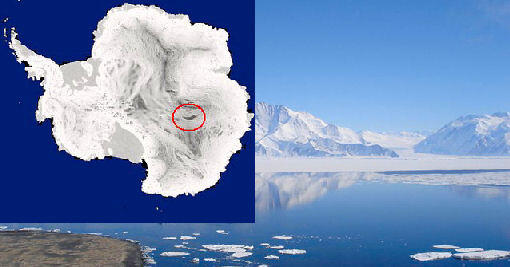Do we hold finally proof that Lake Vostok, this lake in Antarctica covered with an ice sheet of 4,000 meters thick, cut off from the outside world for 10 to 20 million years, contains indeed life ?
Yes, according to the article published by the State University biologists Bowling Green (United States), that life would be even more rich. Indeed, 3507 DNA sequences have been discovered, belonging to as many different living organisms.
Yet it is clear that despite the excellent reputation of the studies and their credibility, caution remains the watchword. Indeed, the risk that these DNA sequences actually come from contamination caused by the drilling of the ice sheet covering the liquid pocket of Lake Vostok is not exclude (the drilling of Lake Vostok , which began in 1989 by a Russian team, was completed in February 2012). We remember especially the mysterious bacteria, discovered in March 2013 in a sample taken in Lake Vostok , which actually was proven from contamination caused by drilling operations.
These precautions being asked, what is the exact nature of the discovery of biologist Yury Shtarkman and his colleagues at the State University of Bowling Green?
By analyzing four water samples from the frozen lake after a called Vostok ice core G5, US biologists have discovered the existence of 3507 unique DNA sequences.
The authors of this discovery stated that 94% of these DNA fragments belong to bacteria, and 6% to eukaryotic (the domain of the living said “eukaryotic” includes all unicellular and multicellular organisms whose cells have a nucleus and mitochondria).
By analyzing all the DNA fragments discovered using a computer database, US biologists were able to identify living organisms in 1623, and to the genus level, and even sometimes the species.
These results were published on July 3, 2013 in the journal Plos One under the title“Subglacial Lake Vostok (Antarctica) Accretion Ice Contains a Diverse Set of Sequences from Aquatic, Marine and Sediment-Inhabiting Bacteria and Eukarya” .











